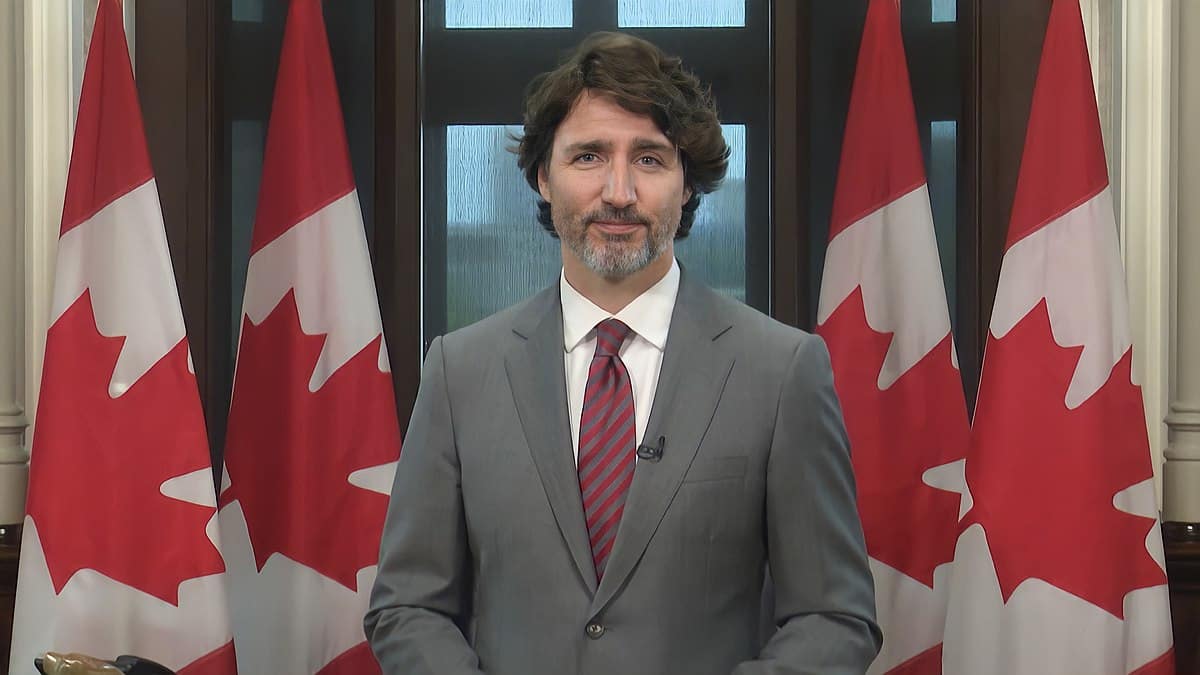On February 14, Justin Trudeau invoked emergency powers to crack down on the peaceful truckers’ protest in Ottawa. The Emergencies Act became law in 1988, and it has never been used until now. The act contains
“a specific definition of “national emergency” that makes clear how serious a situation needs to be before the Act can be relied upon. A national emergency is an urgent, temporary and critical situation that seriously endangers the health and safety of Canadians or that seriously threatens the ability of the Government of Canada to preserve the sovereignty, security and territorial integrity of Canada. It must be a situation that cannot be effectively dealt with by the provinces and territories.”
The Act empowers the government to do pretty much anything it wants. For example, tow-truck companies have refused requests from the City of Ottawa to haul away the big trucks. Under the act, the government can order these companies/drivers to do the job and impose stiff penalties for disobeying the order. In other words, the government can confiscate and utilize private resources, including labor.
This is a frightening development because it is based on Trudeau’s unsubstantiated claims that the Ottawa protest is dangerous. Apparently, the government deactivated the CCTV cameras in downtown Ottawa because the video footage would show a peaceful protest, which would reveal the authorities’ lies. So much for government transparency, one of the many broken promises on which Trudeau was elected.
The Justice Centre for Constitutional Freedoms (JCCF) responded to Trudeau’s declaration of a national emergency:
“Peaceful protesters who feed the homeless, shovel snow, pick up garbage, dance in the streets, play street hockey, wave Canadian flags, sing the national anthem and set up bouncy castles for children do not ‘seriously endanger the lives, health or safety of Canadians,’ nor are these peaceful activities ‘of such proportions or nature as to exceed the capacity or authority of a province to deal with it’,” states [lawyer Jay Cameron, litigation director at the Justice Centre.]
Sworn affidavits about the situation in Ottawa, filed with the courts, indicate that the truckers are ‘friendly, courteous, humble, considerate and peaceful.’
The peaceful nature of the truckers’ protest has also been confirmed by numerous media sources and by hundreds if not thousands of videos taken by people on the ground in Ottawa.
“Truckers in Ottawa sitting in hot tubs by their trucks do not ‘seriously threaten the ability of the Government of Canada to preserve the sovereignty, security and territorial integrity of Canada.’ The only reason the truckers are still in Ottawa is because the arrogant political elite refuse to discuss the truckers’ concerns over the loss of their civil liberties, and authoritarian vaccination mandates”, stated Cameron.
The truckers want their civil liberties restored. “End the mandates.” That’s all they are asking. They simply want their freedom back. Andrei Mincov, a Canadian lawyer, wrote, “If the word ‘free’ is to have any real meaning, it has to involve not being subject to the control or domination of another, whether it is an outside force, the force of the national government or the force of other people or organizations … if the word ‘free’ is to have any meaning, it should mean something more than whatever freedom remains after the government has finished restricting it.”
Nor is it acceptable for the government to restrict freedom in the name of public health, and there is a good reason for this. Overwhelming evidence shows that the government’s covid mandates have been ill informed and counterproductive. But where is the accountability?
Defining Accountability
If you break your neighbor’s window, accident or not, you pay for the replacement. Whether you paid willingly or were pressured to pay, the other neighbors are likely to agree this is an appropriate remedy. You caused the damage, and you paid money to reverse the damage. The compensation comes out of your own pocket. You have been held accountable for your actions.
In contrast, when a ruling party loses an election, most people say that politicians have been held accountable for their mistakes. In fact, the pundits always tell us, “If you don’t like the government, then don’t forget to vote, because this is your opportunity to hold politicians accountable.”
Really? That’s how we define accountability in politics? Is our anger and frustration alleviated when we kick the bums out of office? Is it enough to see teary-eyed politicians deliver concession speeches on election night?
Make no mistake, if the prime minister and/or any provincial premiers lose their jobs over their covid policies, this does not mean that they have been held accountable for their actions. Genuine accountability would require them—not the government (i.e., taxpayers)—to personally compensate Canadians who have suffered under their COVID protocols. This includes compensating the relatives of thousands of Canadians who died due to delayed healthcare during lockdowns. And it includes compensating countless Canadians who lost their jobs and/or were forced into isolation for the stress, anxiety, and despair they experienced, all because of the lockdowns. And it includes compensating those who suffered from increased levels of substance abuse, crime, suicide, homicide, child abuse, domestic violence, divorce, and cardiovascular disease due to the effects of unemployment and isolation, all because of the lockdowns.
According to the act, after formally declaring a national emergency, which the government did on February 14,
The government must table a motion in both the House of Commons and the Senate within seven sitting days that asks for confirmation of the Declaration and explains the reasons for it.
Both the House of Commons and the Senate must vote on the motion. If either the House of Commons or the Senate does not vote in favour of the Declaration, then it is revoked that very day.
Let us hope that saner heads prevail.
This article was originally featured at the Ludwig von Mises Institute and is republished with permission.
































